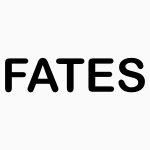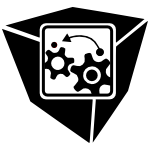45 papers:
 DATE-2015-ChangD #analysis #model checking #modelling #using
DATE-2015-ChangD #analysis #model checking #modelling #using- May-happen-in-parallel analysis of ESL models using UPPAAL model checking (CWC, RD), pp. 1567–1570.
 SAS-2015-AlbertGG #analysis #interprocedural #source code
SAS-2015-AlbertGG #analysis #interprocedural #source code- May-Happen-in-Parallel Analysis for Asynchronous Programs with Inter-Procedural Synchronization (EA, SG, PG), pp. 72–89.
 CSCW-2015-OlteanuVC #social #social media #what
CSCW-2015-OlteanuVC #social #social media #what- What to Expect When the Unexpected Happens: Social Media Communications Across Crises (AO, SV, CC), pp. 994–1009.
 KDD-2015-RongCM #identification #modelling #social #why
KDD-2015-RongCM #identification #modelling #social #why- Why It Happened: Identifying and Modeling the Reasons of the Happening of Social Events (YR, HC, ZM), pp. 1015–1024.
 SIGIR-2015-AllegrettiMHPJP
SIGIR-2015-AllegrettiMHPJP- When Relevance Judgement is Happening?: An EEG-based Study (MA, YM, MH, FEP, JMJ, GP), pp. 719–722.
 SAC-2015-SakuraiM #debugging #object-oriented #source code
SAC-2015-SakuraiM #debugging #object-oriented #source code- The omission finder for debugging what-should-have-happened bugs in object-oriented programs (KS, HM), pp. 1962–1969.
 PPoPP-2015-ThomsonD #concurrent #lazy evaluation #partial order #reduction #testing
PPoPP-2015-ThomsonD #concurrent #lazy evaluation #partial order #reduction #testing- The lazy happens-before relation: better partial-order reduction for systematic concurrency testing (PT, AFD), pp. 259–260.
 DATE-2014-ChenHD #analysis #graph #modelling
DATE-2014-ChenHD #analysis #graph #modelling- May-happen-in-parallel analysis based on segment graphs for safe ESL models (WC, XH, RD), pp. 1–6.
 ITiCSE-2014-KothiyalMI #learning #question #scalability
ITiCSE-2014-KothiyalMI #learning #question #scalability- Think-pair-share in a large CS1 class: does learning really happen? (AK, SM, SI), pp. 51–56.
 ICSME-2014-KononenkoZG #compilation #question #what
ICSME-2014-KononenkoZG #compilation #question #what- Compiling Clones: What Happens? (OK, CZ, MWG), pp. 481–485.
 DHM-SET-2013-Lueder #how
DHM-SET-2013-Lueder #how- How Could This Have Happened? Unintentional Injuries of Young Children at Home (RL), pp. 348–354.
 ICSM-2012-HigoK #consistency #detection #how #nondeterminism
ICSM-2012-HigoK #consistency #detection #how #nondeterminism- How often do unintended inconsistencies happen? Deriving modification patterns and detecting overlooked code fragments (YH, SK), pp. 222–231.
 SAS-2012-LeePMH #analysis #parallel #performance
SAS-2012-LeePMH #analysis #parallel #performance- Efficient May Happen in Parallel Analysis for Async-Finish Parallelism (JKL, JP, RM, HH), pp. 5–23.
 CSCW-2012-Baba #question #what
CSCW-2012-Baba #question #what- Science, technology and society revisited: what is happening to anthropology and ethnography? (MLB), pp. 5–6.
 CIKM-2012-Diaz-AvilesDGSN #online #recommendation #topic #twitter #what
CIKM-2012-Diaz-AvilesDGSN #online #recommendation #topic #twitter #what- What is happening right now ... that interests me?: online topic discovery and recommendation in twitter (EDA, LD, ZG, LST, WN), pp. 1592–1596.
 FSE-2012-AlbertFG #concurrent #named
FSE-2012-AlbertFG #concurrent #named- MayPar: a may-happen-in-parallel analyzer for concurrent objects (EA, AFM, SG), p. 14.
 ICSM-2011-Kemmerer #how #what
ICSM-2011-Kemmerer #how #what- How to steal a botnet and what can happen when you do (RAK), p. 1.
 DUXU-v1-2011-PrabhalaLG #people #question #what #word
DUXU-v1-2011-PrabhalaLG #people #question #what #word- Ethnography, Ethnography or Ethnography? What Happens When the Same Word Means Different Things to Different People? (SP, DL, SG), pp. 102–110.
 REFSQ-2011-BakalovaDHW #agile #requirements #what
REFSQ-2011-BakalovaDHW #agile #requirements #what- Agile Requirements Prioritization: What Happens in Practice and What Is Described in Literature (ZB, MD, AH, RW), pp. 181–195.
 CAV-2010-KahlonW #concurrent #debugging #detection #graph #precise #source code
CAV-2010-KahlonW #concurrent #debugging #detection #graph #precise #source code- Universal Causality Graphs: A Precise Happens-Before Model for Detecting Bugs in Concurrent Programs (VK, CW), pp. 434–449.
 CIKM-2009-BeckerBGJP #web #what
CIKM-2009-BeckerBGJP #web #what- What happens after an ad click?: quantifying the impact of landing pages in web advertising (HB, AZB, EG, VJ, BP), pp. 57–66.
 RE-2009-WnukRK #comprehension #industrial #scalability #visualisation #what
RE-2009-WnukRK #comprehension #industrial #scalability #visualisation #what- What Happened to Our Features? Visualization and Understanding of Scope Change Dynamics in a Large-Scale Industrial Setting (KW, BR, LK), pp. 89–98.
 TAP-2008-Ferrara #abstract interpretation #memory management #static analysis
TAP-2008-Ferrara #abstract interpretation #memory management #static analysis- Static Analysis Via Abstract Interpretation of the Happens-Before Memory Model (PF), pp. 116–133.
 CHI-2007-AndreasenNSS #empirical #testing #usability #what
CHI-2007-AndreasenNSS #empirical #testing #usability #what- What happened to remote usability testing?: an empirical study of three methods (MSA, HVN, SOS, JS), pp. 1405–1414.
 PPoPP-2007-AgarwalBSS #analysis #source code
PPoPP-2007-AgarwalBSS #analysis #source code- May-happen-in-parallel analysis of X10 programs (SA, RB, VS, RKS), pp. 183–193.
 FATES-RV-2006-ElmasQT #named #using
FATES-RV-2006-ElmasQT #named #using- Goldilocks: Efficiently Computing the Happens-Before Relation Using Locksets (TE, SQ, ST), pp. 193–208.
 IWPC-2005-ReissR #java #tool support
IWPC-2005-ReissR #java #tool support- Tool Demonstration: JIVE and JOVE: Java as it Happens (SPR, MR), pp. 169–172.
 SOFTVIS-2005-ReissR #java #named
SOFTVIS-2005-ReissR #java #named- Jove: java as it happens (SPR, MR), pp. 115–124.
 ICSE-2005-ReissR #java
ICSE-2005-ReissR #java- Demonstration of JIVE and JOVE: Java as it happens (SPR, MR), pp. 662–663.
 DAC-2004-DeoZBCGLRRS #question #what
DAC-2004-DeoZBCGLRRS #question #what- What happened to ASIC?: Go (recon)figure? (ND, BZ, IB, JC, BG, PL, CBR, CR, RS), p. 185.
 RE-2004-Cross #design #how
RE-2004-Cross #design #how- How Creative Design Happens (NC), p. 2.
 CHI-2003-KitamuraYHKK #tool support
CHI-2003-KitamuraYHKK #tool support- Things happening in the brain while humans learn to use new tools (YK, YY, HI, FK, MK), pp. 417–424.
 HT-2002-ShipmanMMHA #hypermedia #semantics
HT-2002-ShipmanMMHA #hypermedia #semantics- Semantics happen: knowledge building in spatial hypertext (FMSI, JMM, PM, HwH, RA), pp. 25–34.
 ICPR-v2-2002-KakD #question #what
ICPR-v2-2002-KakD #question #what- Robotic Vision: What Happened to the Visions of Yesterday? (ACK, GND), pp. 839–847.
 RE-2002-KauppinenKAL #how #requirements
RE-2002-KauppinenKAL #how #requirements- Introducing Requirements Engineering: How to Make a Cultural Change Happen in Practice (MK, SK, TA, LL), pp. 43–51.
 RE-2001-Hooks #requirements #what
RE-2001-Hooks #requirements #what- What Happens With Good Requirements Practices (IH), p. 268.
 RE-2001-WesselsD #question #requirements #what
RE-2001-WesselsD #question #requirements #what- What Happens before Requirements Engineering? (BW, JED), pp. 298–299.
 VLDB-2000-ManegoldBK #cpu #memory management #optimisation #what
VLDB-2000-ManegoldBK #cpu #memory management #optimisation #what- What Happens During a Join? Dissecting CPU and Memory Optimization Effects (SM, PAB, MLK), pp. 339–350.
 SIGMOD-1999-CareyCNVDRSM #question #what
SIGMOD-1999-CareyCNVDRSM #question #what- O-O, What’s Happening to DB2? (MJC, DDC, SN, BV, DD, SR, RS, NMM), pp. 511–512.
 ITiCSE-1999-Carter #collaboration #student #what
ITiCSE-1999-Carter #collaboration #student #what- Collaboration or plagiarism: what happens when students work together (JC), pp. 52–55.
 HCI-CCAD-1999-Wulf #modelling #quote #why
HCI-CCAD-1999-Wulf #modelling #quote #why- “Why did that happen?” — Building appropriate mental models on groupware functions (VW), pp. 338–342.
 KR-1998-Karlsson #reasoning
KR-1998-Karlsson #reasoning- Anything Can Happen: On Narratives and Hypothetical Reasoning (LK), pp. 36–47.
 FSE-1998-NaumovichA #algorithm #data flow #detection #parallel
FSE-1998-NaumovichA #algorithm #data flow #detection #parallel- A Conservative Data Flow Algorithm for Detecting All Pairs of Statement That May Happen in Parallel (GN, GSA), pp. 24–34.
 KBSE-1991-Sasso91a #question #what
KBSE-1991-Sasso91a #question #what- Encouraging the Adoption of KBSE Technology: What Needs to Happen First? (WCS), pp. 237–238.
 DAC-1973-Freitag
DAC-1973-Freitag- Some things that did not happen in software DA (HF), p. 61.
 DATE-2015-ChangD #analysis #model checking #modelling #using
DATE-2015-ChangD #analysis #model checking #modelling #using SAS-2015-AlbertGG #analysis #interprocedural #source code
SAS-2015-AlbertGG #analysis #interprocedural #source code CSCW-2015-OlteanuVC #social #social media #what
CSCW-2015-OlteanuVC #social #social media #what KDD-2015-RongCM #identification #modelling #social #why
KDD-2015-RongCM #identification #modelling #social #why SIGIR-2015-AllegrettiMHPJP
SIGIR-2015-AllegrettiMHPJP SAC-2015-SakuraiM #debugging #object-oriented #source code
SAC-2015-SakuraiM #debugging #object-oriented #source code PPoPP-2015-ThomsonD #concurrent #lazy evaluation #partial order #reduction #testing
PPoPP-2015-ThomsonD #concurrent #lazy evaluation #partial order #reduction #testing DATE-2014-ChenHD #analysis #graph #modelling
DATE-2014-ChenHD #analysis #graph #modelling ITiCSE-2014-KothiyalMI #learning #question #scalability
ITiCSE-2014-KothiyalMI #learning #question #scalability ICSME-2014-KononenkoZG #compilation #question #what
ICSME-2014-KononenkoZG #compilation #question #what DHM-SET-2013-Lueder #how
DHM-SET-2013-Lueder #how ICSM-2012-HigoK #consistency #detection #how #nondeterminism
ICSM-2012-HigoK #consistency #detection #how #nondeterminism SAS-2012-LeePMH #analysis #parallel #performance
SAS-2012-LeePMH #analysis #parallel #performance CSCW-2012-Baba #question #what
CSCW-2012-Baba #question #what CIKM-2012-Diaz-AvilesDGSN #online #recommendation #topic #twitter #what
CIKM-2012-Diaz-AvilesDGSN #online #recommendation #topic #twitter #what FSE-2012-AlbertFG #concurrent #named
FSE-2012-AlbertFG #concurrent #named ICSM-2011-Kemmerer #how #what
ICSM-2011-Kemmerer #how #what DUXU-v1-2011-PrabhalaLG #people #question #what #word
DUXU-v1-2011-PrabhalaLG #people #question #what #word REFSQ-2011-BakalovaDHW #agile #requirements #what
REFSQ-2011-BakalovaDHW #agile #requirements #what CAV-2010-KahlonW #concurrent #debugging #detection #graph #precise #source code
CAV-2010-KahlonW #concurrent #debugging #detection #graph #precise #source code CIKM-2009-BeckerBGJP #web #what
CIKM-2009-BeckerBGJP #web #what RE-2009-WnukRK #comprehension #industrial #scalability #visualisation #what
RE-2009-WnukRK #comprehension #industrial #scalability #visualisation #what TAP-2008-Ferrara #abstract interpretation #memory management #static analysis
TAP-2008-Ferrara #abstract interpretation #memory management #static analysis CHI-2007-AndreasenNSS #empirical #testing #usability #what
CHI-2007-AndreasenNSS #empirical #testing #usability #what PPoPP-2007-AgarwalBSS #analysis #source code
PPoPP-2007-AgarwalBSS #analysis #source code FATES-RV-2006-ElmasQT #named #using
FATES-RV-2006-ElmasQT #named #using IWPC-2005-ReissR #java #tool support
IWPC-2005-ReissR #java #tool support SOFTVIS-2005-ReissR #java #named
SOFTVIS-2005-ReissR #java #named ICSE-2005-ReissR #java
ICSE-2005-ReissR #java DAC-2004-DeoZBCGLRRS #question #what
DAC-2004-DeoZBCGLRRS #question #what RE-2004-Cross #design #how
RE-2004-Cross #design #how CHI-2003-KitamuraYHKK #tool support
CHI-2003-KitamuraYHKK #tool support HT-2002-ShipmanMMHA #hypermedia #semantics
HT-2002-ShipmanMMHA #hypermedia #semantics ICPR-v2-2002-KakD #question #what
ICPR-v2-2002-KakD #question #what RE-2002-KauppinenKAL #how #requirements
RE-2002-KauppinenKAL #how #requirements RE-2001-Hooks #requirements #what
RE-2001-Hooks #requirements #what RE-2001-WesselsD #question #requirements #what
RE-2001-WesselsD #question #requirements #what VLDB-2000-ManegoldBK #cpu #memory management #optimisation #what
VLDB-2000-ManegoldBK #cpu #memory management #optimisation #what SIGMOD-1999-CareyCNVDRSM #question #what
SIGMOD-1999-CareyCNVDRSM #question #what ITiCSE-1999-Carter #collaboration #student #what
ITiCSE-1999-Carter #collaboration #student #what HCI-CCAD-1999-Wulf #modelling #quote #why
HCI-CCAD-1999-Wulf #modelling #quote #why KR-1998-Karlsson #reasoning
KR-1998-Karlsson #reasoning FSE-1998-NaumovichA #algorithm #data flow #detection #parallel
FSE-1998-NaumovichA #algorithm #data flow #detection #parallel KBSE-1991-Sasso91a #question #what
KBSE-1991-Sasso91a #question #what DAC-1973-Freitag
DAC-1973-Freitag









